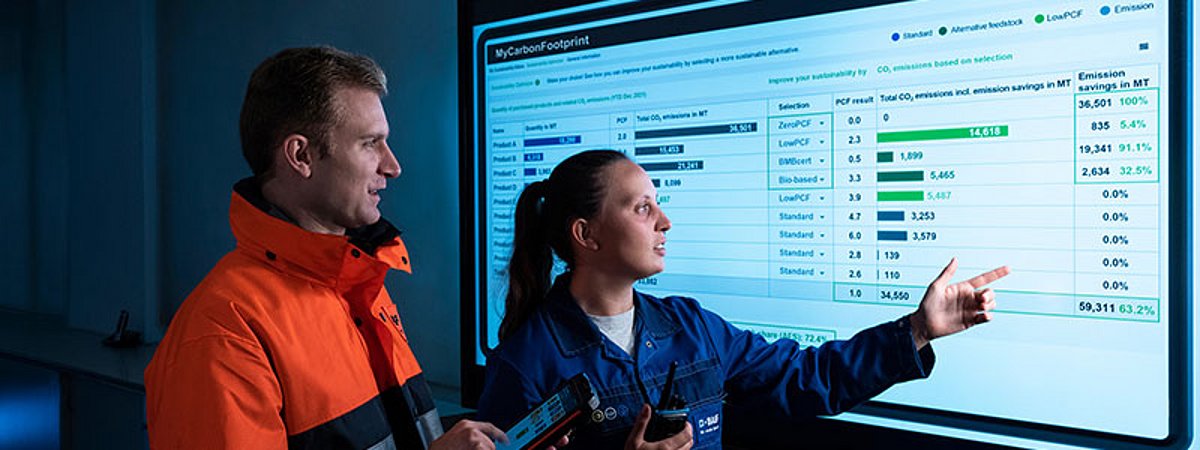New BASF dashboard enables sustainable procurement

BASF offers customers a new digital app that gives them comprehensive insight into the sustainability status of the product portfolio they buy from BASF. The app "MyCarbonFootprint" helps to find the best BASF solutions to achieve sustainability goals in terms of CO2 reduction and use of renewable raw materials.
BASF's MyCarbonFootprint app contains data on more than 700 selected BASF products, including pharmaceutical ingredients, amino resins, butanediol and derivatives, acids, polyalcohols, alkynes, carbonyl derivatives and amines. This information is initially available to certain BASF customers who purchase products from the MyCarbonFootprint portfolio. Currently, more than 50 customers are already using the app. MyCarbonFootprint provides customers with information about the BASF products they purchase in terms of their individual carbon footprint, "cradle-to-gate," i.e., from their creation at BASF to their shipment The app also provides information about the proportion of renewable raw materials used in the manufacture of these products. The data is presented on a customer-specific basis: Based on the purchased quantities of a specific product, MyCarbonFootprint calculates its CO2 emissions, carbon footprint and share of renewable raw materials according to the customer's individual purchase from BASF. Thus, customers can use MyCarbonFootprint to find out how to optimize their sustainability status in terms of CO2 emissions and use of renewable raw materials. MyCarbonFootprint calculates, for example, the possible reduction in CO2 emissions if a product variant with a lower CO2 footprint is chosen instead of the previously purchased product. MyCarbonFootprint also shows BASF customers various alternatives on how to increase the share of renewable raw materials in their value chain by choosing sustainable product variants.
"We developed MyCarbonFootprint to provide our customers with the transparency they need to target their CO2 emissions goals. At the same time, we want to help them select the best sustainable product solutions from our portfolio," explains Niels Möller, Global Strategic Marketing, Intermediates division, BASF. A team led by Möller developed the innovative IT tool from scratch to market readiness. MyCarbonFootprint provides an overview of the various sustainable product variants from BASF's portfolio. BASF customers can, for example, reduce their CO2 emissions by using BASF's low-PCF products. These products have a significantly reduced "Product Carbon Footprint" (PCF) based on a specific customer requirement or compared to a reference value. The low-PCF portfolio includes, among others, biobased or biomass-balanced (BMB) products. Such products can help customers reduce CO2 emissions compared to standard fossil-based products. In some cases, BASF additionally offers net-zero products, which have a PCF of zero or less than zero. Switching to BMB products is also an easy way for customers to increase the share of renewable raw materials in the value chain. In the BMB approach, BASF already feeds renewable raw materials into its Verbund in the first steps of chemical production. A corresponding proportion of these raw materials is then allocated to specific sales products using a certified mass balance process. BMB products are certified according to recognized standards such as REDcert2 or ISCC PLUS.4 Since BMB products are identical to standard fossil products in terms of quality and properties, they are "drop-in" solutions. Customers can use them without having to adapt their existing manufacturing processes.
